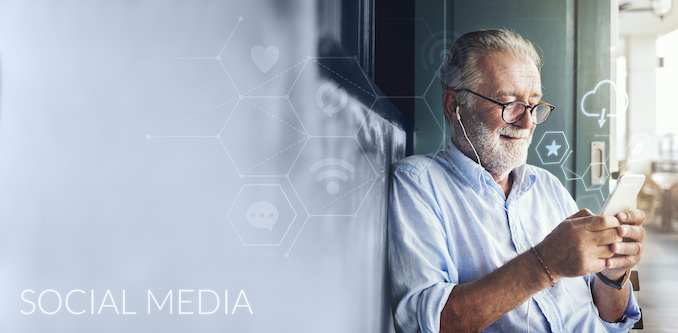
By Matthew R Hale, Attorney at Law
Representing people in civil and criminal matters has taught me a few things about the nature of our social media, wearable technology, and other tech gadgets that gather personal information. It’s amazing how much information people create and generate about their lives by merely participating in these platforms. The information in the hands of the government or an insurance company can destroy your case, make you look like a liar, or flat out convict you. And, worse, you have no legal right to privacy in any social media.
I was defending a deposition of a client, whose hand was injured in an automobile collision. She was someone who was active and in good physical shape. She liked to hang out with her friends and traveled a lot. She wore a Fitbit to track her fitness level, workouts, and sleep. Her car was smashed from behind and the insurance company for the other driver had hired a well known aggressive defense firm to go after her.
In discovery they were able to get a copy of her Facebook account. It’s now almost impossible to prevent this from happening. Her account was filled with photos and videos. She was drinking with friends, holding cocktail glasses in the injured hand. There were photos of her carrying things in that hand, and videos of her participating in physical activities and challenges. She posted some of the photos, but most of the photos were ones she was “tagged” in.
The defense seized on this. And, they seized on the fact she wore a Fitbit, and they wanted that data. It was a fight. They wanted the data as to when she was sleeping, exercising, and anything else they could find. The Fitbit was a treasure trove of information. They were willing to hire an expensive forensic expert to get the information to defeat her claim.
People put everything on Facebook and social media. They share their trips, their relationships, and other information. They share photographs, things they have purchased, activities done and the people they spent time with. They share their political beliefs, activities and health concerns. The information never goes away. It just sits there until someone or some corporation or government agency gets it, or until an angry ex-spouse uses it in a divorce or custody proceeding.
It’s also not only insurance companies that are after this information. Post a picture of a mole you trapped in violation of anti-trapping laws and animal cruelty laws and behold, you have posted irrefutable evidence you have committed a crime. Perhaps you denied drinking and lied to a police officer only to have an investigator later find photos of you at the bar on your public Facebook page. Any photos of you with firearms or wearing camouflage? Perhaps you went back and forth in a dispute with a neighbor who has now filed a restraining order against you and you posted about your issues on Facebook. Maybe you gave a friend a pain pill you had because they had a migraine and made arrangements on Facebook Messenger. Perhaps your are a doctor, who made a comment about COVID-19.
At best this information is used to track you and market to you. But, more frequently, it is being used to make you look like a lier. It is being used by employers to judge who you are and how you behave. It can be used to convict you of a crime. If your Facebook pages doesn’t match your testimony, it will be used to make you out to be a liar.
We are now moving into the holidays and people will want to gather. In many states, this will be a violation of some fiat edict from above. So ask yourself: if a contract tracer saw my Facebook page, what would he find out? Will my friends be taking photos and tagging me in them? Perhaps they will reach out on Facebook messenger and discuss what happened. Will your phone track you and note the proximity you are in to other and for how long? Do the photos show the people you are with and does the facial recognition software show their names to whoever is looking at them? Maybe link them to their Facebook accounts?
Also, more and more groups are forming large memberships on Facebook and other social media platforms, protesting lockdowns and other government wrongs. These groups are tracked, traced and followed. In some states, groups post about small businesses and restaurants defying the lockdown. Of course, it doesn’t take long for the government to get wind of this. And, the people that ate there and put it on Facebook just opened themselves up for contact tracing.
This may sound like an issue where many people say, well “duh!” But, time and time again, insurance companies and prosecutors win their cases based upon information freely and openly published on social media platforms. There are no rights to privacy on any of these platforms. Let me repeat that, you have no right to privacy on any social media platform. The information is free to anyone with subpoena power, and you cannot delete it or get rid of it.
